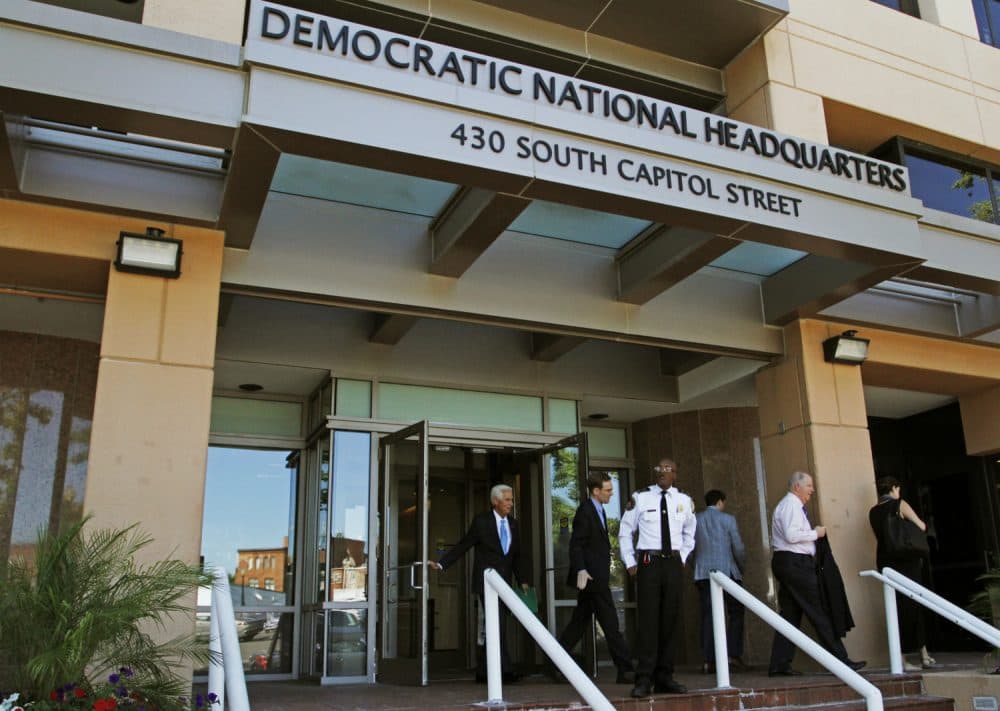Advertisement
Spies, Lies And Prying Eyes: Donald Trump, Russian Intelligence And Espionage In U.S. Elections

The news that Russian spies have gone after Donald Trump confirms that the schoolyard bully who would be president has stumbled into a grown-up world he barely comprehends. Over the past months, we are told, Russian intelligence agents hacked into the Democratic National Committee’s trove of opposition research on Trump. What they found there, and what they’ve already found on their own, is unknown. How they might use it is the bigger question.
Intelligence agencies believe that they alone understand how the larger world really works. They know best their countries’ strategic interests, or so they think. Spy services don’t like surprises, or disrupters of the global order, unless it’s to their benefit.
Spy services don’t like surprises, or disrupters of the global order, unless it’s to their benefit.
Enter Donald Trump, who personifies disorder and exalts unpredictability. Foreign leaders have expressed deep concern about Trump who, among other unnerving positions, won’t rule out the use of nuclear weapons in Europe or allowing a nuclear arms race to unfold in Southeast Asia. His comments on global economic matters are equally alarming. (The well-respected Economist Intelligence Unit rates a Trump presidency among its top 10 global risks.)
In the U.S., Trump-induced cracks have already appeared in pillars of the national-security elite. Former CIA director and Defense Secretary Robert Gates has described Trump’s foreign policy as "inconsistent and overconfident." “Our friends and adversaries are quite concerned” by the prospect of a Trump presidency, Gates noted.
Another former CIA chief, Michael Hayden, has stated that U.S. troops would disobey orders to kill terrorists’ families, defying Trump, who has said he would command soldiers to do so. Hayden added that he would be “incredibly concerned” if Trump governed as he has promised. Current CIA director John Brennan says the agency will never waterboard again, contrary to Trump’s intention to restore and amplify the practice. Hayden echoed Brennan, telling Trump that, if he wants to waterboard, he should “bring your own damn bucket.”
This outspoken opposition to its potential commander-in-chief by America’s intelligence elite likely signals an even deeper unease in operational intelligence circles, both at home and abroad. Such blunt language coming from the top is rare, but not unprecedented. On past occasions, similar talk has sometimes preceded action.
Historically, the U.S. is known for its interventions in the politics of other countries. But there have been troubling cases at home as well. Perhaps the most egregious example of the U.S. intelligence elite working against a domestic politician was the 1980 effort against President Carter’s re-election. Intelligence and military officers, both serving and retired, aided the Reagan-Bush campaign in undermining Carter, as was later revealed by Congress’s “Debategate” investigation.
The CIA has even conducted covert actions against itself. In 1993, the Senate unanimously approved the appointment of James Woolsey as CIA director. But agency officers decided Woolsey had to go, in large part due to his handling of the case of Aldrich Ames, who sold secrets to the Russians. Two years into his term, Woolsey abruptly resigned, the victim of “the sort of covert operations that are usually directed against foreign enemies,” as one agency official noted at the time.
If the CIA’s own leadership and a sitting American president are not immune to this kind of thing, should presidential candidate Trump be worried? Apparently, some of his team feels that something’s afoot.“A sense of paranoia is growing among his campaign staffers,” The New York Times recently reported, “including some who have told their associates they believe that their Trump Tower offices may be bugged.”
History confirms that intelligence agencies -- alone or in consort, inside or outside their own borders -- will act to influence politics and elections.
Be that as it may, consider that foreign intelligence agencies “tracked like no other” the relatively benign 2008 U.S. election cycle while engaging “in perception management to influence policy,” according to the U.S. Office of the Director of National Intelligence. To cite one instance, the Chinese hacked into both the 2008 McCain and Obama campaigns, stealing sensitive material, including private correspondence between McCain and the president of Taiwan. In this current campaign, Trump’s dangerously erratic candidacy will no doubt tempt foreign agencies to even greater meddling. Exhibit Number One so far is the Russians, who may be merely the first foreign intelligence service doing so.
History confirms that intelligence agencies — alone or in consort, inside or outside their own borders — will act to influence politics and elections. Whether such actions are officially sanctioned or the work of renegade elements hardly matters in the end; the result is what counts.
Despite evidence to the contrary, most Americans might instinctively say, “That can’t happen here.” If that sounds familiar, it should — it’s what many people were once saying about a Donald Trump presidency.
